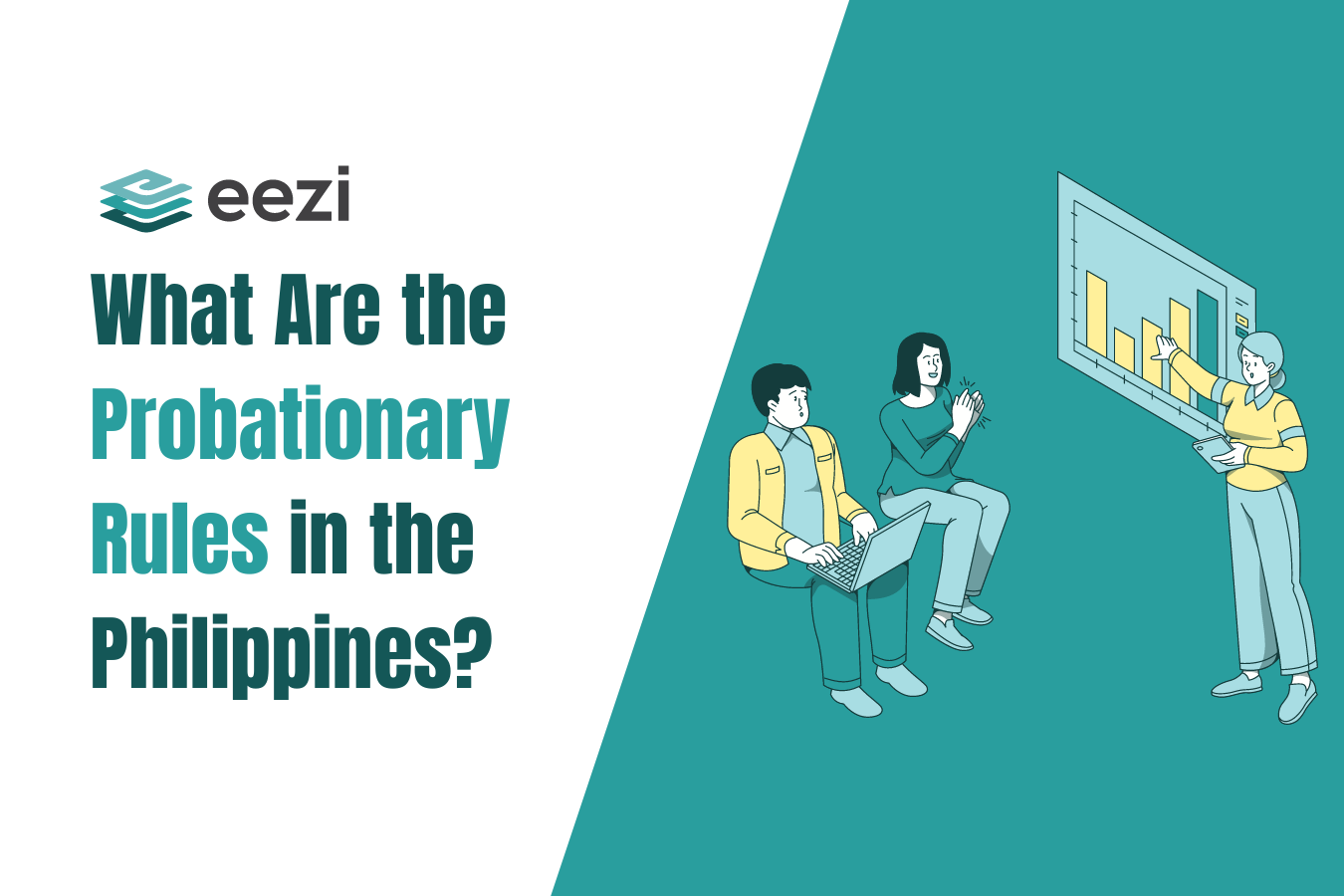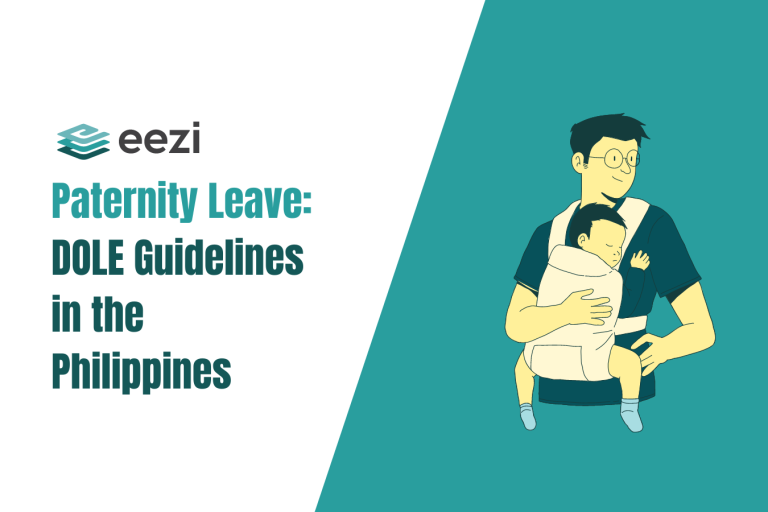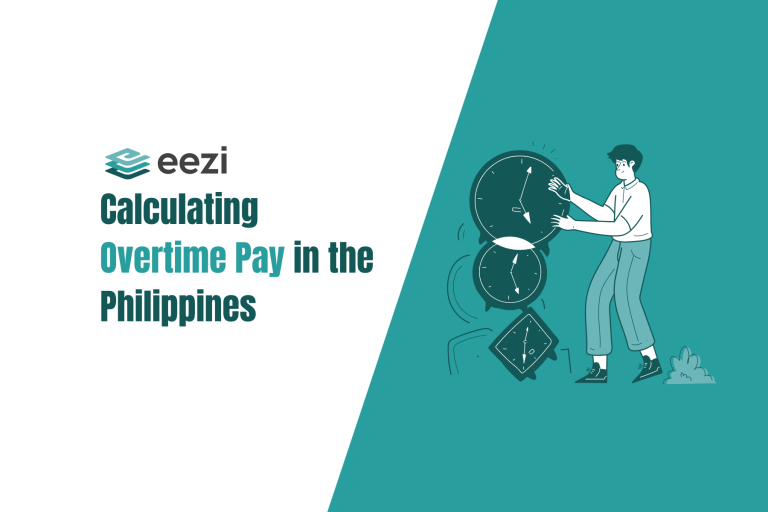What are the probationary rules in the Philippines?

An employer may have spent a lot of time and money searching for a qualified applicant. However, they won’t be able to tell immediately if they have the right individual for the job. Employers will only be able to gauge once the chosen candidate begins carrying out their actual day-to-day duties.
Thus, requiring new hires to undergo a probationary period before being promoted to regular or fixed-term employees is a common practice. This gives the employer time to understand better whether the employee can do the duties. Furthermore, it allows time to assess whether they can adhere to the team’s expectations of behavior and standards of conduct.
To better comprehend the DOLE probationary period in the Philippines, we put together a brief overview of what every Human Resources department and employee should know.
What are the rights of a probationary employee?
1. Probationary period duration
Probationary employees in the Philippines can be employed with a probationary period lasting from one to six months. The length may only be extended if the nature of the job requires an apprenticeship.
2. Right to clear employment conditions
During the probationary period, an employer has the right to retain or terminate an employee based on pre-agreed conditions. These conditions should be made clear to the employee at the start of the probationary period.
3. Protection against unfair dismissal
Probationary employees are protected by labor laws and cannot be dismissed unfairly. If an employer terminates a probationary employee without clear requirements or after the fact, the company may be liable for illegal dismissal. The employee can file a complaint with the Department of Labor and Employment (DOLE).
4. Anti-discrimination and benefit entitlement
Employers cannot discriminate against probationary employees or deny them contractual benefits during the probationary term. After successfully completing the probationary period, employees should receive standard employee benefits as mandated by Philippine employment laws.
5. Continued legal rights
Even during the probation period, employees enjoy basic legal rights, including protection against unfair dismissal. They cannot be fired for asserting statutory benefits such as personal leave, pregnancy, or maternity.
Understanding these rights as a probationary employee helps ensure fair and lawful treatment in the workplace.

What are the rules on probationary employment in the Philippines?
A probationary employee is hired on an evaluation basis in a probationary employment arrangement. This gives the employer a chance to evaluate the employee’s suitability for the position and determine whether they will become responsible and productive workers.
Probationary employees must be provided or informed of the regularization standards.
Informing probationary employees of the standards for regularization is a crucial practice mandated by the Philippine Labor Code. This legal requirement ensures transparency and fairness in the employment relationship.
It provides clarity to both the employer and the employee. This allows a fair evaluation of the employee’s performance during the probationary period and prevents arbitrary dismissals.
More importantly, it safeguards the rights and interests of probationary employees. It ensures they have a reasonable opportunity to meet the established standards.
Moreover, it makes sure that they are being considered for regular employment, promoting transparency, fairness, and accountability in the employment relationship.
Probationary length may be reduced or extended.
The employer must inform the employee about the duration of the probationary period and the specified requirements.
The maximum time the legislation allows for probationary employment is six months. However, this may be shortened at the employer’s discretion.
Employees who stay on beyond six months are regular employees in the eyes of the law. Additionally, the Supreme Court has set 180 days as an equivalent of the required six months to qualify.
However, the employer can extend the probationary period without the employee getting the status of a regular employee. In other words, the extension of the probationary period is not forbidden by the law. If both parties agree and the employer offers sufficient justification, the probationary period can be extended.

Can a probationary employee be terminated immediately?
A probationary employee’s employment may be terminated for a valid reason. Alternatively, it may also apply when the employee no longer meets the requirements to be a regular employee.
Any of the following reasons could result in a termination by an employer:
- Gross and persistent failure to perform obligations by the employee
- Serious misbehavior or willful violation by an employee of the legitimate instructions of his employer or agent while performing the job;
- When the employee commits a crime or offense against his employer, a member of his immediate family, or his lawfully appointed representatives;
- Fraud or a deliberate breach of the employee’s duty to maintain the trust placed in him by his employer.
Other valid reasons for the termination of the employee’s probationary period
Establishment closure and reduction of employee
An employer may terminate an employee’s probationary employment when their establishment closes or ceases in operation. Moreover, the employer may also end the probationary period due to redundancy, retrenchment, or a combination of these events to avoid losses.
Furthermore, the affected employee should receive separation pay. This pay should be equal to at least one (1) month of salary.
Disease as a reason for termination
Any employee who has been diagnosed with a disease but continues to work can face termination. This applies to cases where the employee is either violating the law or endangering their health and the health of their coworkers. In this situation, the employer can then decide to terminate the employee’s employment.
An employee who is terminated due to disease may receive separation pay that is at least one (1) month’s worth of wages.
How many months of probationary period does the law allow for employees?
In general, the law allows for up to (6) months of probationary period. This is counted from the worker’s start date unless a longer time is specified in an apprenticeship agreement.
However, this is not guaranteed employment. An employer can still terminate an employee under a probationary period for valid reasons.
Lastly, an employee authorized to work following a probationary contract is considered a regular employee.
Can a probationary employee resign immediately?
Probationary employees in the Philippines have the right to resign during their probationary period if they choose to do so. Common reasons for resigning during this period include a poor fit with the job or receiving a more attractive job offer.
However, it’s important for employees to provide the necessary written notice to their employer before resigning. Failure to do so may result in the employer withholding up to one week’s salary or an equivalent amount.
Conversely, if the employer decides to terminate the probationary employee, they are required to give advance written notice or may offer “payment in lieu of notice.” This demonstrates that both employees and employers have certain rights and responsibilities during the probationary period.
Related: What counts as casual employment in the Philippines?
Is it legal to extend a DOLE probationary period in the Philippines?
Generally, probationary employment cannot last longer than six months from the date the employee began working.
There are, however, several exceptions to the six (6) month rule. In the following situations, this period may extend beyond six months:
- Where an apprenticeship agreement covers the work
- When the work is subject to special laws (e.g., teaching staff covered under the Manual of Regulations for Private Schools)
- When the parties to an employment contract have the option to agree differently, one case is when the requirement is imposed by corporate policy.
- It also applies when necessary due to the nature of the task the employee is expected to perform.
- When probationary employment is prolonged, it offers the worker a chance to develop
- It increases the opportunity to prove suitability for ongoing employment.
Experience Effortless Probation Administration
eezi‘s timekeeping platform has a user-friendly interface and reliable features that help companies manage and supervise probationary employees properly. It allows you to manage performance, schedules, and time logs easily. Check it now to learn more!



